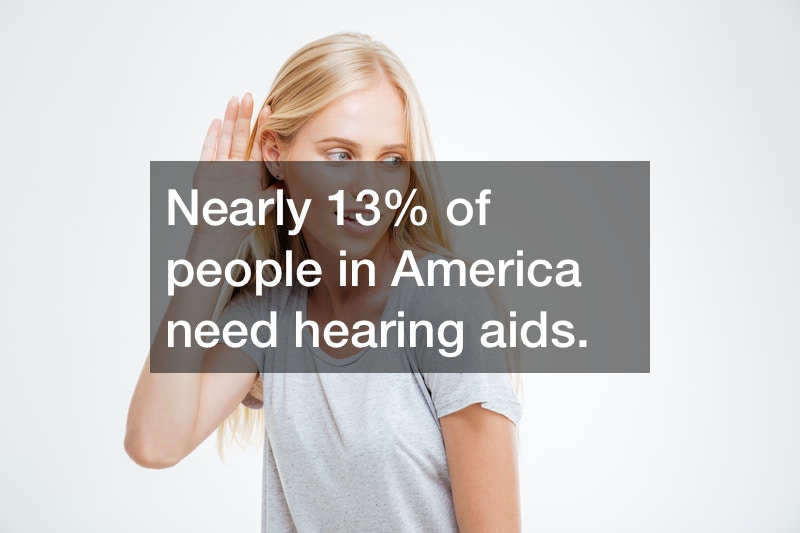
Hearing aids need to be maintained daily. It’s important to clean them every evening or morning. These devices also have to be kept very dry. Bacteria can accumulate on hearing aids relatively easily.
Many modern hearing aids are at least water-resistant, but if there’s enough moisture on them, it creates a good environment for various types of bacteria. The bacteria on hearing devices can potentially cause ear infections. People can avoid some of these problems by thoroughly drying off the hearing aids after cleaning them. However, it’s still often important to take these devices to an audiologist at least a couple of times every year.
Audiologists can examine these acute hearing aids and clean them professionally. They’ll run a number of different tests to confirm that these hearing devices are functioning properly. The audiology professionals might also offer additional tips on how to effectively care for adult hearing aids.
Reading acute hearing reviews might also help some patients learn more about specific devices. A patient may want to read about a new advanced level hearing aid. That said, certain maintenance procedures will help make all hearing devices more durable and effective. Something as simple as removing the batteries every night can be useful.

There are several common misconceptions out there about hearing loss, with many people wrongfully assuming it’s something that only seniors and older people suffer from. And while it’s true that one in three people over the age of 65 have some kind of hearing loss, one in five teens suffer from hearing loss as well. In fact, teenagers and young adults are among the fastest growing group of people to experience hearing loss due to their near constant use of earbuds and other high quality headphones that sit directly in the hear. This is evidenced by the fact that hearing loss in America has doubled between 2000 and 2015.
Though 15 million people who suffer from hearing loss in the United States avoid seeking treatment or help, there are a variety of hearing treatments available. Custom hearing protection is the best way to prevent hearing loss but protecting the sensitive inner ear, but if or when hearing loss does occur, assistive listening devices such as hearing aids can dramatically improve one’s ability to hear clearly. Many people with hearing loss may at first feel embarrassed or annoyed at the thought of having to wear a hearing aid, but once they begin doing so, they can’t imagine life without it!
Once an assistive hearing device such as a hearing aid is purchased, there are usually a few other accessories that must be purchased alongside of it in order to keep it functioning properly and in good working order. In addition to the tools needed to keep them clean and carrying cases, hearing aid batteries are also needed in order to keep the device working, just like a remote control or any other battery operated device.
The different kinds of hearing aid batteries
Though rechargeable hearing aid batteries are now available for sale, zinc air button batteries are still the most common type of hearing aid battery used. In years past, trace amounts of mercury were traditionally used in hearing aid batteries to increase conductivity and as a stabilizer for internal components. But after growing concern and an understanding of the toxicity of mercury, the majority of hearing aid battery manufacturers create and sell mercury free assistive hearing devices.
As their name implies, zinc air batteries are activated by air. In order to keep them inactive until they’re ready to be used, zinc air batteries come with a factory-sealed sticker that prevents them from coming into contact with activating air. Once removed by the wearer, oxygen in the air will interact with the battery’s zinc and activate it, making it ready for use. In order for wearers to experience the best performance from their zinc air activated hearing aid batteries, manufacturers suggest removing the factory seal and allowing the battery to “breathe” for at least one full minute before wearing it.
When kept dry and at room temperature, zinc air batteries can last for up to three years or more. Contrary to popular belief however, zinc-air batteries will not last longer by being stored in a refrigerator. In fact, doing so can actually cause water particles to build up under the sticker and because water contains oxygen, this can unintentionally activate the battery before it’s intended use.
Hearing aid battery sizes
Assistive hearing devices come in a number of different colors, styles, shapes, and sizes to suite the needs and preferences of their wearers. As such, the power requirements for each device will differ from other models of different sizes. Generally speaking, larger hearing aids will need a larger battery while smaller ones that require less power can run off of a smaller hearing aid battery.
Unlike the hearing aid itself, the size difference in terms of hearing aid batteries can be hard to differentiate or can be hard to remember. Because of this, the packaging of hearing aid batteries is color coded in order to make finding the buying the right one a quick, simple, and easy process.
Batteries for hearing aids can be purchased at most large retail and department stores, as well as pharmacies, grocer stores, and electronics stores.



